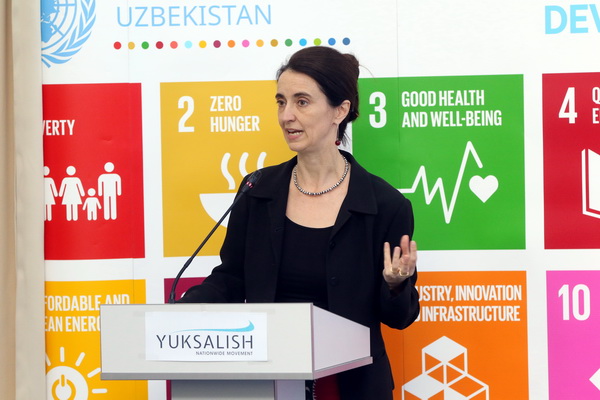
Tashkent, Uzbekistan (UzDaily.com) -- Representatives of the governmental and non-governmental organizations, research and educational institutions as well as international experts participated in a policy dialogue ‘Social Protection for Children: a reform imperative in Uzbekistan’. It was organized by National Movement “Yuksalish” and UNICEF.
About 9% of Gross Domestic Product in Uzbekistan is allocated to social security and payments, which is a good indicator as per international practices. About 60 percent of the state budget is spent for social expenditures. To make those investments more effective it is needed to improve social protection system.
Children and young people account for nearly 60% of the population of the country. At the same time poverty rate is the highest among children, and only 17% of them are included into Childcare and Family Allowance schemes. Due to insufficient financing, the impact of current programmes has been minimal, reducing national poverty by only 8 per cent. Poverty incidence among children up to 15 years is 1.5 times higher than among adults.
Low income among families prevents creating conducive environment for children to grow and develop, they do not gain the knowledge and skills which enable them to obtain decent jobs in future. As per joint research done by UNICEF and the World Bank, children from the poorest households are 1.4 times less likely to benefit from pre-school education than from more affluent households.
“In the last two years, the Government has initiated several reforms. Economic reforms are often associated with financial shocks and risks, which may potentially increase the vulnerabilities of families,” said Sascha Graumann, Representative, UNICEF Uzbekistan. “Hence, a strengthened social protection system for families with children must be a key component of the current reform agenda,” he added.
Participants at the dialogue discussed various recommendations to enhance social protection for children in Uzbekistan. UNICEF also presented an option to reform the current policy, which can increase the impact of the child benefits to national poverty reduction from current 8% to 21% by 2030. If recommendations are implemented, it will be possible to increase the coverage to at least 75% of children up to 18 years old gradually by 2034.
UNICEF’s recommendations have been developed to assist the Government of Uzbekistan in meeting the objectives of the sustainable development goals of leaving no one behind.